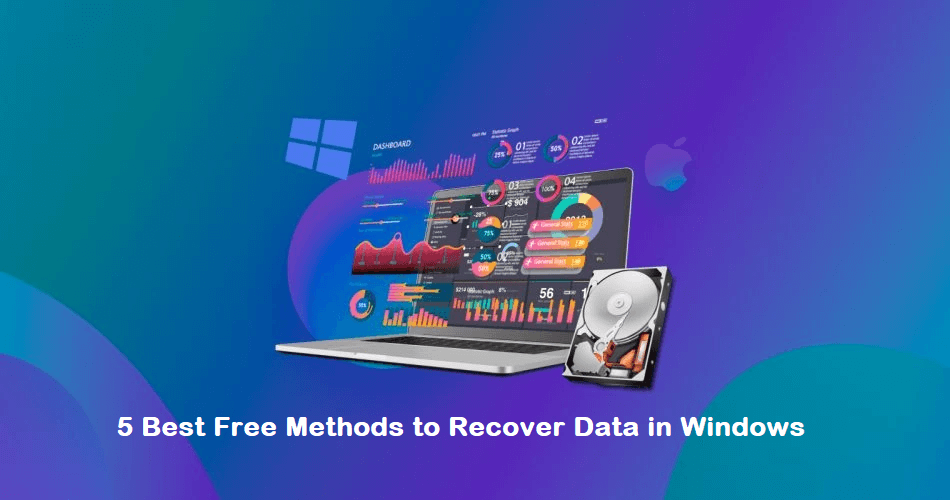Investing in Tech Start-Ups: Opportunities and Risks
In recent years, there has been a surge in the number of tech start-ups worldwide. These young companies, powered by visionary entrepreneurs, are characterized by their agility, flexibility, and focus on innovation. They have the potential to revolutionize various sectors, from healthcare and transportation to finance and education.
Investing in a tech business can be highly rewarding, as successful companies may deliver exponential returns to early investors. However, this potential for lucrative profits comes with inherent risks, as the competitive landscape, financial stability, and long-term viability of these companies can be uncertain. As such, it is crucial for investors to understand the opportunities and risks.
Opportunities for Investing in Tech Start-Ups
Let’s start by taking a look at the many opportunities that can confront start-up investors. These things can make a compelling case and convince you to get in.
High Growth Potential
The technology industry is known for its rapid pace of innovation, with new advancements emerging continuously. As a result, tech start-ups that develop cutting-edge solutions or capitalize on emerging trends can experience accelerated growth and deliver substantial returns to investors. For instance, some invest in Open AI stocks, hoping to benefit from the increasing importance of artificial intelligence in various industries. Many believe that it’s hot and has the potential to change the world, making it a worthwhile investment.
More so, tech start-ups often aim to disrupt established industries by offering innovative products, services, or business models. By challenging the status quo and addressing unmet needs or inefficiencies, these companies can carve out a competitive advantage, rapidly gain market share, and generate significant value for their investors.
Diversification
Investing in tech start-ups allows investors to diversify their portfolios, spreading risk across different areas of technology and reducing the impact of underperformance in any single industry.
Further, the global nature of the technology industry presents investors with numerous opportunities to invest in start-ups from different countries and regions. This geographical diversification can help mitigate risks associated with economic and political factors in specific regions while offering exposure to innovative ideas and markets worldwide.
Supportive Ecosystem
There is a robust network of venture capital firms and angel investors, who provide funding, expertise, and connections to help start-ups grow and succeed. By investing in tech start-ups, investors can benefit from this supportive infrastructure and the value-added services these partners provide, increasing the likelihood of successful outcomes.
In addition, many governments around the world recognize the importance of fostering innovation and supporting the growth of tech start-ups. As a result, various initiatives and policies have been implemented to create a conducive environment for these companies, including tax incentives, grants, and regulatory support.
Risks Associated with Investing in Tech Start-Ups
Despite the benefits, you must be cautious before investing in a start-up. It’s crucial that you are familiar with the potential risks, including those we’ll talk about below.
High Failure Rate
The technology industry is highly competitive, with numerous start-ups vying for market share and user adoption. This competition can make it difficult for individual companies to succeed, leading to start-up failure. The more competitive the market is, the higher the chance that your venture will fail.
As more and more tech start-ups emerge, certain markets and niches can become saturated, making it challenging for new entrants to gain traction and differentiate themselves from competitors. In these cases, even innovative companies may struggle to find their footing and generate returns for investors.
Tech startups must utilize various business tools to prevent failure. Investing in research and development and building a competitive team can also help. Not to mention, it’s crucial to keep on innovating to be not left behind.
Financial Risks
Investments in tech start-ups are typically illiquid, as shares in these companies are not publicly traded on stock exchanges. This can make it difficult for investors to sell their stakes and realize gains, as exit options such as mergers and acquisitions or initial public offerings (IPOs) may not materialize or may take several years to come to fruition.
As tech start-ups raise additional capital, existing investors may experience dilution of their ownership stakes, reducing their share of future returns. This dilution can significantly impact the potential upside of an investment, especially if a start-up requires multiple funding rounds to achieve its growth objectives.
Technology and Product Risks
In the fast-paced technology industry, products and services can quickly become obsolete as new advancements emerge. This rapid pace of change presents a risk for investors, as tech start-ups may struggle to keep up with the evolving landscape and maintain a competitive edge.
Tech start-ups often rely heavily on their intellectual property (IP) to differentiate themselves from competitors and secure a competitive advantage. However, IP protection can be complex and expensive, and start-ups may face challenges in defending their innovations from infringement or navigating potential legal disputes.
Strategies for Minimizing Risks and Maximizing Returns

Like in any other business, you must find a way to maximize profits while reducing the risks. Here are some things that can help.
Thorough Due Diligence
Before investing in a tech start-up, it is essential for investors to conduct due diligence to gain a comprehensive understanding of the company’s business model, target market, and competitive landscape. This information can help investors assess the viability of the start-up’s offering, the potential market size, and the likelihood of success.
The quality of the founding team and management is a critical factor in determining a tech start-up’s potential for success. Investors should assess the team’s experience, expertise, and track record to ensure they have the necessary skills and capabilities to execute the business plan and navigate the challenges associated with scaling a start-up.
Investors should examine a tech start-up’s financial health, including its revenue, expenses, cash flow, and burn rate, to determine its financial stability and sustainability. Additionally, reviewing the company’s financial projections and growth plans can help investors gauge the potential for future returns and identify any red flags or areas of concern.
Diversification Within the Tech Start-up Portfolio
To mitigate risks associated with investing in tech start-ups, investors should consider diversifying their portfolios by investing in multiple companies across various industries and stages of development. This diversification can help spread risk and increase the likelihood of achieving positive returns, as the success of one start-up may offset losses from others.
By diversifying investments across different industries within the tech sector, investors can further reduce their exposure to risks associated with specific markets or trends. Additionally, balancing investments between early-stage start-ups and more mature companies can help mitigate risks related to the high failure rates of early-stage ventures.
Seeking Professional Guidance
Asking for help from industry experts and mentors can provide valuable insights and perspectives on tech start-up investments. These individuals can help investors identify promising opportunities, evaluate potential risks, and develop strategies for maximizing returns while minimizing exposure to potential losses.
Venture capital firms possess significant experience and expertise in identifying, evaluating, and supporting promising tech start-ups. By partnering with or investing alongside these firms, individual investors can benefit from their industry knowledge and networks, increasing the likelihood of successful investments.
Conclusion
Investing in tech start-ups offers the potential for significant returns, driven by the high growth potential, diversification opportunities, and supportive ecosystem of the technology industry. However, these investments also come with inherent risks, including high failure rates, financial challenges, and technology and product uncertainties.
To navigate the complex landscape of tech start-up investing, it is crucial for investors to conduct thorough research, perform comprehensive due diligence, and diversify their portfolios. These strategies can help minimize risks and increase the likelihood of achieving positive returns.
Popular Post
Recent Post
How to Troubleshoot Xbox Game Bar Windows 10: 8 Solutions
Learn how to troubleshoot and fix issues with the Xbox Game Bar not working on Windows 10. This comprehensive guide provides 8 proven solutions to resolve common problems.
How To Record A Game Clip On Your PC With Game Bar Site
Learn how to easily record smooth, high-quality game clips on Windows 11 using the built-in Xbox Game Bar. This comprehensive guide covers enabling, and recording Game Bar on PC.
Top 10 Bass Booster & Equalizer for Android in 2024
Overview If you want to enjoy high-fidelity music play with bass booster and music equalizer, then you should try best Android equalizer & bass booster apps. While a lot of these apps are available online, here we have tested and reviewed 5 best apps you should use. It will help you improve music, audio, and […]
10 Best Video Player for Windows 11/10/8/7 (Free & Paid) in 2024
The advanced video players for Windows are designed to support high quality videos while option to stream content on various sites. These powerful tools support most file formats with support to audio and video files. In this article, we have tested & reviewed some of the best videos player for Windows. 10 Best Videos Player […]
11 Best Call Recording Apps for Android in 2024
Whether you want to record an important business meeting or interview call, you can easily do that using a call recording app. Android users have multiple great options too. Due to Android’s better connectivity with third-party resources, it is easy to record and manage call recordings on an Android device. However it is always good […]
10 Best iPhone and iPad Cleaner Apps of 2024
Agree or not, our iPhones and iPads have seamlessly integrated into our lives as essential companions, safeguarding our precious memories, sensitive information, and crucial apps. However, with constant use, these devices can accumulate a substantial amount of clutter, leading to sluggish performance, dwindling storage space, and frustration. Fortunately, the app ecosystem has responded with a […]
10 Free Best Barcode Scanner for Android in 2024
In our digital world, scanning barcodes and QR codes has become second nature. Whether you’re tracking packages, accessing information, or making payments, these little codes have made our lives incredibly convenient. But with so many barcode scanner apps out there for Android, choosing the right one can be overwhelming. That’s where this guide comes in! […]
11 Best Duplicate Contacts Remover Apps for iPhone in 2024
Your search for the best duplicate contacts remover apps for iPhone ends here. Let’s review some advanced free and premium apps you should try in 2024.
How To Unsubscribe From Emails On Gmail In Bulk – Mass Unsubscribe Gmail
Need to clean up your cluttered Gmail inbox? This guide covers how to mass unsubscribe from emails in Gmail using simple built-in tools. Learn the best practices today!
7 Best Free Methods to Recover Data in Windows
Lost your data on Windows PC? Here are the 5 best methods to recover your data on a Windows Computer.






















